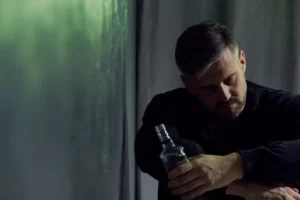Step 1 A A. Why the 12-step Journey Begins with Powerlessness FHE Health

It frees up mental and emotional energy that can be redirected towards seeking support, developing healthier coping mechanisms, and making positive changes in their lives. Contrary to the perception that powerlessness implies weakness, embracing powerlessness in sobriety can actually be a source of strength. It takes courage and self-awareness to confront the reality of addiction and acknowledge the need for help.
How to Maintain Long-Term Recovery From Addiction
- By relinquishing control over your addiction, you are now free to get help and support from others.
- As the effects of alcohol wear off, you may have trouble sleeping, shakiness, irritability, anxiety, depression, restlessness, nausea, or sweating.
- How does the alcoholic perceive the fact that brain structure and function change for the worse with chronic drinking and that they change again with sobriety?
- They were personally convinced that they were unable to control the effect alcohol had on them.
To identify brain structural and functional deficits in alcoholism and brain–behavior relations, we have taken two approaches. Some studies start with finding brain structural or functional abnormalities using quantitative MR imaging modalities, and then ask what are the functional ramifications of observed regional brain abnormalities. Other studies start with neuropsychological deficits and seek underlying brain abnormalities as underlying mechanisms. It is admittedly off-putting to think of yourself as “powerless.” Many people see asking for help to overcome a particular struggle as a sign of personal failure. This pervasive stigma is a big reason why seeking help for substance abuse, or even admitting you struggle with substance abuse, is so hard.
“Our sound reasoning failed to hold us in check. The insane idea won out.” (Big Book, Page

It was a statistical fact that alcoholics rarely recovered on their own resources” (p. 22). If you can acknowledge and accept those two things—that you have an addiction and it’s causing problems—then you have completed the First Step of Alcoholics Anonymous, and you have officially begun your recovery. In this article, we’ll explain the language in greater detail and in simpler terms. And with the help of well-known recovery author Jeff Jay, we’ll also figure out how to actually work the Step and what it’s trying to teach us. Even if you don’t believe in God, you can still undergo the AA first step. This cycle of lies and keeping secrets can go on for years, and that in itself can create an atmosphere that actually causes the situation to deteriorate faster.
When You Quit Drinking, Expect to be Miserable
Recognizing that these old habits and patterns have power over one’s ability to maintain sobriety is crucial. Letting go of these familiar but destructive behaviors requires a willingness to embrace change and adopt healthier alternatives. This process often involves seeking support from others, implementing new coping mechanisms, and creating a supportive environment that fosters recovery. One of the fundamental aspects of embracing powerlessness is surrendering control. In addiction, individuals often try to exert control over their substance use, believing they can manage or moderate it. However, this control becomes an illusion, leading to a cycle of destructive behaviors.
- We believe that these steps are the foundation for building a healthy, sober life, and we have seen the good fruit of these teachings in the lives of our patients.
- Part of the lack of control supported by the disease model of addiction comes from the observed changes in brain chemistry caused by long-term alcohol misuse.
- When you are 2 or 10 or 20 years sober, you are still going to be powerless over alcohol.
- It is not a substitute for clinical treatment or individualized therapeutic services.
Consider talking with someone who has had a problem with drinking but has stopped. The first order of business should be to explain the meaning of powerless within this context, because that’s the term that confuses and upsets the most people, and it may turn some people away from Twelve Step recovery for good. The FHE Health team is committed to providing accurate information that adheres to the highest standards of writing. If one of our articles is marked with a ‘reviewed for accuracy and expertise’ badge, it indicates that one or more members of our team of doctors and clinicians have reviewed the article further to ensure accuracy. This is part of our ongoing commitment to ensure FHE Health is trusted as a leader in mental health and addiction care.
Admitting powerlessness is very debasing, it is a form of surrender. Of course that is one of the main thrusts of AA, giving up and ceding control to your higher power. Not only for this reason, but also because whilst we have any suspicion at all that we can drink and stay in control, our object is usually to moderate rather than stop entirely. This first step is simple acceptance that we have powerless over alcohol a problem with drinking. By recognizing the benefits of embracing powerlessness in sobriety, we can shift our perspective and approach our recovery journey with a newfound sense of openness and receptivity. Through building resilience and humility, developing trust and surrender, and finding freedom and inner peace, we can cultivate a more fulfilling and transformative recovery experience.


They decided to record a description of the path to recovery that had worked for them. This became the 12 Steps of Alcoholics Anonymous, which they offered as a path to finding freedom from alcohol addiction. But, since it was the way that had worked for them, it was the way they had to offer others. Hanley Center is a well-known care provider offering a range of treatment programs targeting the recovery from substance use, mental health issues, and beyond. Our primary mission is to provide a clear path to a life of healing and restoration. We offer renowned clinical care and have the compassion and professional expertise to guide you toward lasting recovery.
